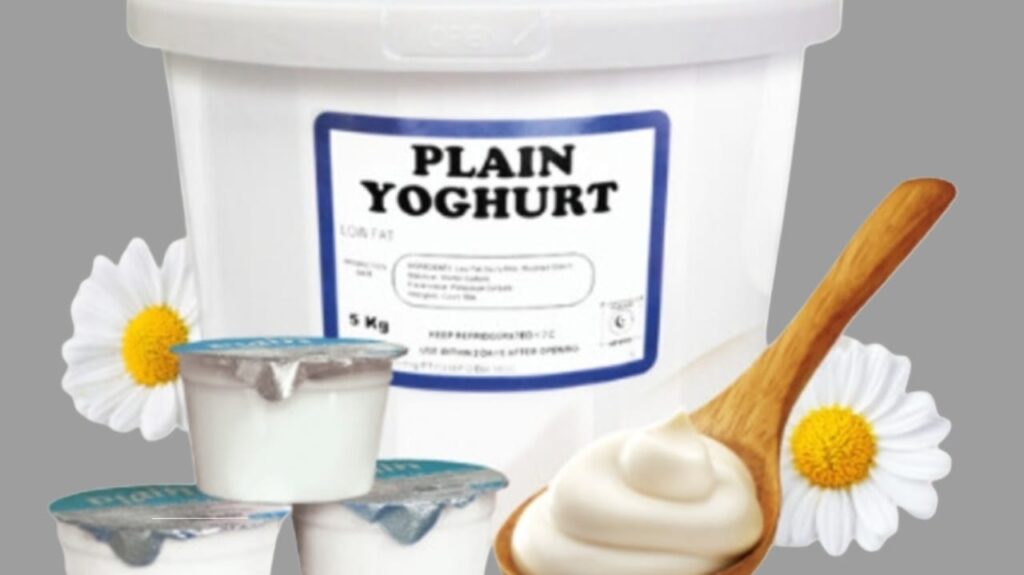
Colon cancer is one of the most common cancers worldwide, with lifestyle and diet playing a significant role in its development. In recent years, scientists have turned their attention to everyday foods that might help reduce risk—and yogurt has emerged as a surprising candidate. A groundbreaking study published in Gut Health Research suggests that regularly eating yogurt could lower the likelihood of developing colon cancer by up to 26%. Let’s unpack what this means and why your gut health might be more important than you think.
The Study That Started the Conversation
The research, led by a team at the University of Michigan, followed over 45,000 adults aged 45–75 for a decade. Participants who reported eating at least two servings of yogurt per week showed a significantly lower incidence of colon polyps (abnormal growths that can turn cancerous) compared to those who rarely or never consumed yogurt. Even after adjusting for factors like family history, exercise, and overall diet quality, the association held strong.
Dr. Emily Carter, a gastroenterologist involved in the study, explains, “Yogurt’s benefits likely stem from its probiotic content. These ‘good bacteria’ support a balanced gut microbiome, which plays a critical role in reducing inflammation and preventing DNA damage in colon cells.”
Why Gut Health Matters in Cancer Prevention
Your gut is home to trillions of bacteria, both helpful and harmful. When this ecosystem falls out of balance—due to poor diet, stress, or antibiotics—it can lead to chronic inflammation. Over time, inflammation damages cells and increases cancer risk. Probiotics, like those found in yogurt, act as peacekeepers in this complex environment. They:
- Strengthen the gut lining, preventing toxins from leaking into the bloodstream.
- Produce short-chain fatty acids that nourish healthy colon cells.
- Crowd out harmful bacteria linked to inflammation.
A 2023 review in Nutrition and Cancer highlighted that individuals with high probiotic intake had a 35% lower risk of colorectal cancer compared to those with minimal consumption.
Not All Yogurts Are Created Equal
Before you grab the nearest cup of yogurt, it’s important to know what to look for. Many flavored yogurts are loaded with added sugars, which can negate the benefits by promoting inflammation. Opt for plain, unsweetened varieties with “live and active cultures” on the label. Greek yogurt, in particular, is a stellar choice—it’s higher in protein and often contains more probiotics than regular yogurt.
For those who are lactose intolerant or prefer plant-based options, fermented alternatives like coconut or almond milk yogurt can still provide probiotics, though their strains and quantities may vary.
Beyond Yogurt: A Holistic Approach to Colon Health
While yogurt shows promise, it’s not a magic bullet. Experts stress that overall diet quality matters most. Here’s how to build a gut-friendly plate:
- Fiber is your friend: Aim for 25–30 grams of fiber daily from fruits, vegetables, beans, and whole grains. Fiber feeds beneficial gut bacteria and speeds up waste removal.
- Limit processed meats: Bacon, sausages, and deli meats are classified as Group 1 carcinogens by the World Health Organization, meaning there’s strong evidence they increase cancer risk.
- Stay active: Regular exercise reduces inflammation and helps maintain a healthy weight, a key factor in cancer prevention.
What Critics Say About the Yogurt-Cancer Link
While the study’s findings are compelling, some researchers urge caution. Dr. Mark Richardson, an oncologist at Johns Hopkins, notes, “Observational studies can’t prove cause and effect. We need randomized controlled trials to confirm whether yogurt directly prevents cancer or if healthier people are simply more likely to eat yogurt.” Other limitations include reliance on self-reported dietary data, which isn’t always accurate.
Still, the overall consensus is optimistic. The American Institute for Cancer Research includes yogurt in its list of “Foods That Fight Cancer,” citing consistent evidence of its protective effects.
Practical Tips to Incorporate Yogurt Into Your Diet
- Swap mayo with yogurt: Use plain yogurt as a base for dressings, dips, or potato salad.
- Add it to smoothies: Blend yogurt with berries, spinach, and a tablespoon of flaxseed for a gut-health powerhouse.
- Try savory pairings: Top yogurt with cucumbers, garlic, and dill for a probiotic-rich tzatziki sauce.
The Future of Probiotics in Cancer Research
Scientists are now exploring whether specific probiotic strains, such as Lactobacillus acidophilus and Bifidobacterium, offer unique benefits. Early-stage trials are testing probiotic supplements as adjunct therapies for cancer patients, with some studies suggesting they may improve outcomes during chemotherapy.
As research evolves, one thing is clear: nurturing your gut health through diet is a simple, accessible step toward reducing cancer risk. And for many, that journey could start with something as simple as opening a yogurt cup each morning.
